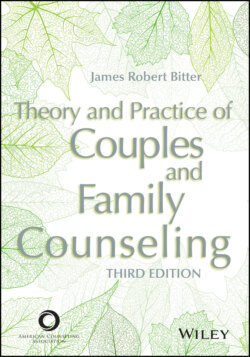Читать книгу Theory and Practice of Couples and Family Counseling - James Robert Bitter - Страница 107
Gender and Cultural Issues
ОглавлениеFeminists long have noted that the normal family, across cultures, has not always been so good for women. A gender perspective in ethics reminds us that patriarchy has real effects on all genders and has to be taken into account when people are engaged in ethical decision-making. Feminists also remind us that patriarchy is just one form of oppression and that discrimination on the basis of race, gender, disability, religion, age, sexual orientation, cultural background, national origin, marital status, and political affiliation still has to be factored deliberately into ethical stances.
Because discrimination, oppression, and marginalization have been such a big part of the social contexts in which we live, a consideration of gender and cultural perspectives in ethical decision-making is essential. In spite of what may be codified in law, there are indeed multiple perspectives on the family that emanate from various cultures. Western cultures tend to portray the nuclear family as normal, limiting it to parents and their children. If the law and Western culture want to recognize aunts, uncles, cousins, grandparents, and ancestors as part of a family system, these family members are called extended family. Such languaging, just as much as physical separation, distances individuals from their natural support systems. In cultures in Africa, Asia, the Middle East, and South America, as well as in some Native American societies, many different members—and sometimes multiple wives—and multiple generations are included in the conceptualization of family. Such a conceptualization of family can often bridge the physical distance between individuals and create a very different ethical stance in the world.
Even in Western cultures today, the forms that constitute family vary widely from the nuclear model that has been enshrined as normal. Functional families are led by single mothers, single fathers, grandparents, single gay fathers, single lesbian mothers, gay coparents, lesbian coparents, and cohabitating parents who have never married. Any of these families may also include biological children, children in foster care, children from surrogate parents, or adopted children. In the United States, we are experiencing a cultural war in relation to the debate over what constitutes marriage and the family. It is a war that recognizes that the definitions of both have already changed. Because there is no evidence of inherent harm in any of these different couple and family arrangements, family practitioners have an affirmative moral and ethical responsibility to support and care for families in all of their diverse forms (Walsh, 2016a).
Think about your own family of origin. What perspectives on family, culture, and gender were contained in your upbringing? What virtues and limitations were contained in your family’s worldview? How many kinds of families and cultural perspectives have you encountered in your lifetime? What experiences, if any, did your family of origin have with discrimination or oppression based on cultural differences or because your family had a different structure than the heterosexual nuclear family that has been declared normal in the dominant culture?
